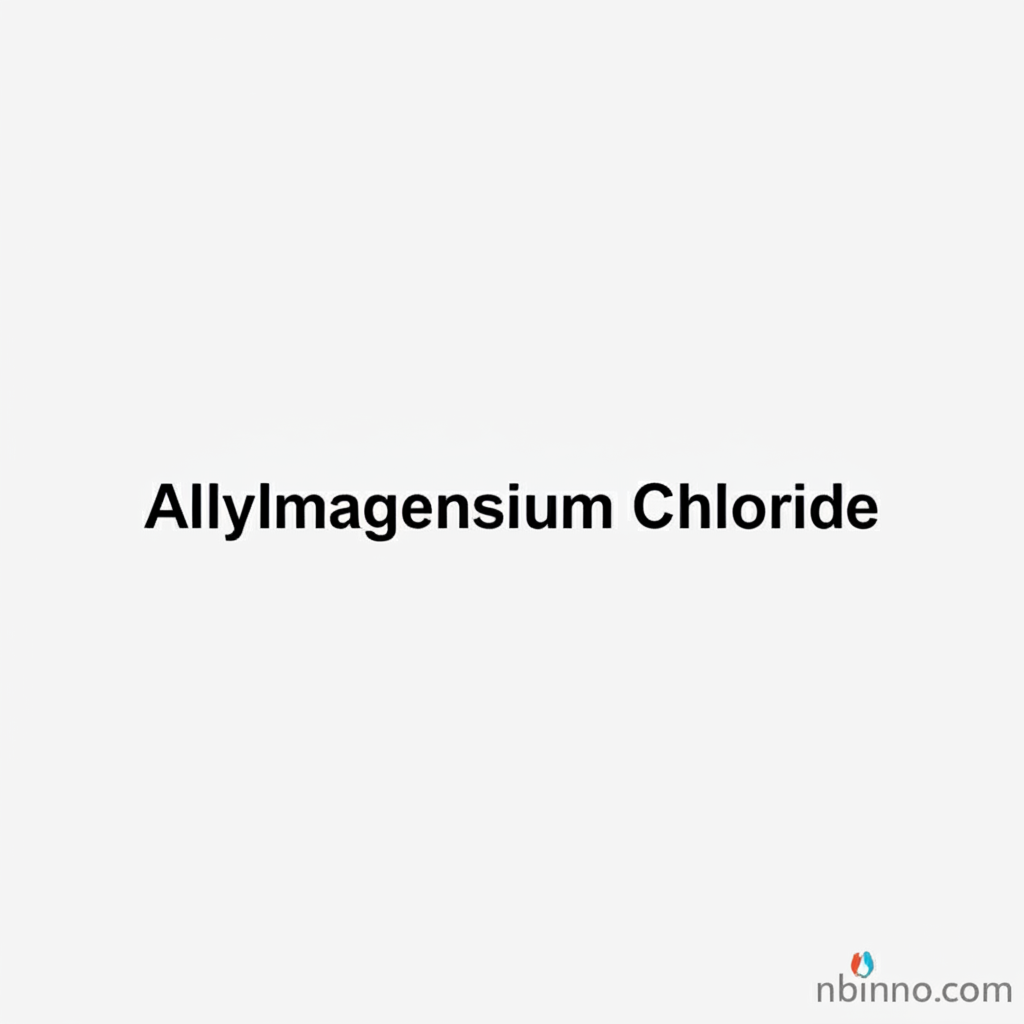Allylmagnesium Chloride (CAS 2622-05-1): A Key Grignard Reagent for Organic Synthesis
Unlock complex chemical structures with our high-purity allylmagnesium chloride, an essential tool for chemists.
Get a Quote & SampleProduct Core Value

Allylmagnesium Chloride
As a critical Grignard reagent, Allylmagnesium Chloride is indispensable for advanced organic synthesis. Its high reactivity allows for efficient carbon-carbon bond formation, a fundamental step in constructing complex organic molecules. Ensuring proper handling under anhydrous conditions is paramount for its effective utilization in various chemical processes.
- The precise chemical formula of this Grignard reagent is C3H5ClMg, making it a versatile building block in chemical synthesis.
- Understanding the allylmagnesium chloride applications is key to leveraging its full potential in research and development.
- When considering buying allylmagnesium chloride online, prioritize suppliers who guarantee purity and proper packaging for safe transport.
- The CAS 2622-05-1 identifier ensures you are sourcing the correct chemical compound for your specific needs.
Advantages of Using Allylmagnesium Chloride
Enhanced Reactivity for Synthesis
Leverage the exceptional reactivity of allylmagnesium chloride for efficient carbon-carbon bond formation, a cornerstone of modern organic synthesis.
Versatile Building Block
This organometallic compound serves as a versatile precursor, enabling the creation of a wide array of complex organic molecules essential for pharmaceuticals and fine chemicals.
Reliable Chemical Intermediate
As a key pharmaceutical intermediate, its consistent quality and performance are vital for successful drug development and manufacturing processes.
Key Applications
Organic Synthesis
The primary use of allylmagnesium chloride lies in its role as a potent Grignard reagent for forming new carbon-carbon bonds, facilitating the synthesis of complex organic structures.
Pharmaceutical Intermediates
It serves as a crucial intermediate in the production of various pharmaceutical compounds, contributing to the development of new medicines.
Fine Chemical Manufacturing
The versatility of this organometallic compound makes it valuable in the fine chemical industry for creating specialized chemicals with precise properties.
Research and Development
Chemists widely utilize allylmagnesium chloride in R&D settings for exploring new synthetic routes and discovering novel chemical entities.
